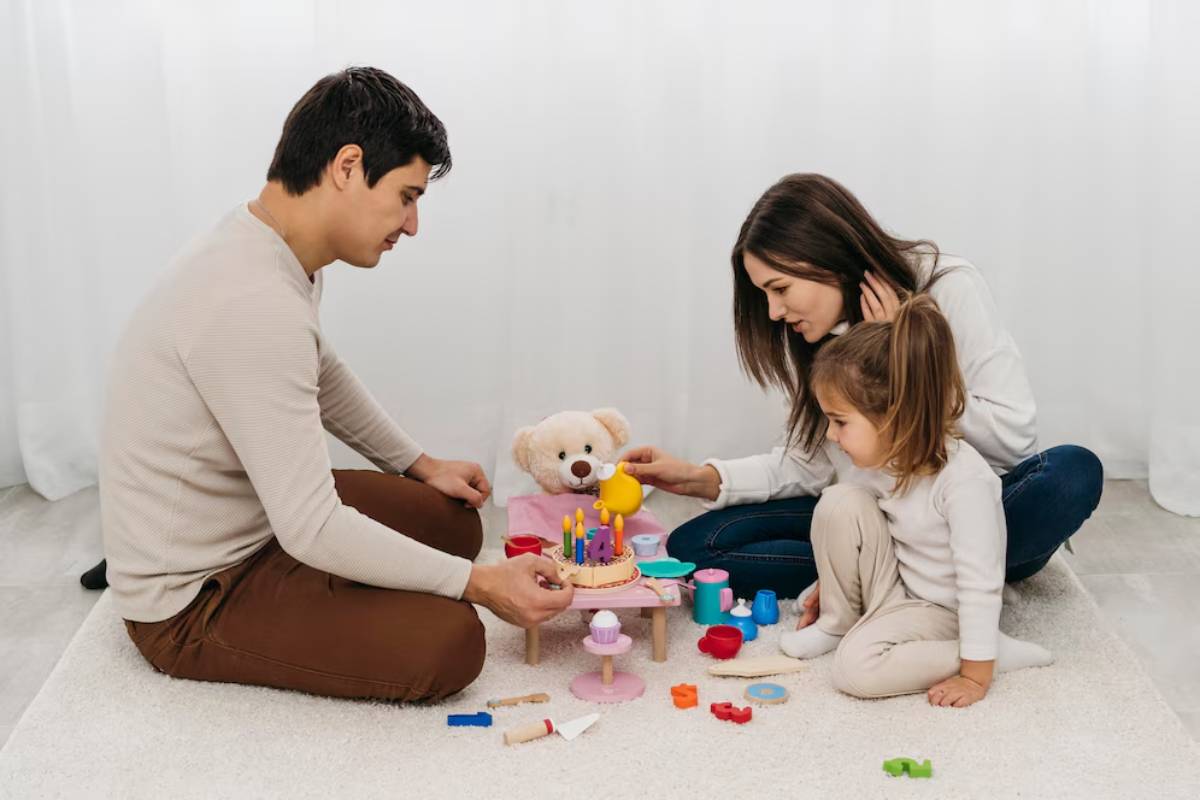
Individual Attention: Nurturing Each Child’s Unique Needs
Twins or multiples have a special journey with double the joy and the challenges namely, in coming to know each child’s emotional and developmental needs. Although twins share milestones, routines, and environments, each child is an individual with personality, likes, and pace. Bonding with twins as individuals as a priority builds a solid emotional foundation that supports confidence and self-esteem.
Multiples too tend to be treated as a package, and in doing so, their identities get mixed unintentionally. With individual attention for multiple, parents provide the individualized care each child needs to develop and thrive socially, emotionally, and cognitively. Supporting individuality for twins, caregivers provide a warm and nurturing environment where each child is seen, heard, and valued for themselves. This blog discusses the need for individual bonding with twins and multiples and provides practical tips for supporting their individualized development without sacrificing the special bond between them.
Why Individual Attention Matters?
Every child is unique, with their own personality, preferences, and development. This uniqueness doesn’t disappear just because they share a birthday. In fact, building individual bonds with twins is key to their emotional and psychological well-being.

Strategies for Individual Bonding with Twins
Research shows that when twins or multiples receive personalised care, they develop a stronger sense of self. This self-awareness boosts their confidence and resilience. It helps them form healthy relationships outside the family. Supporting twins, their individuality allows them to thrive academically and socially, as they express themselves and explore their interests without feeling overshadowed by their siblings.
Strategies for Individual Bonding with Twins
Establishing one-on-one time is important. Parents can schedule regular ‘dates’ with each child in order to share activities they enjoy. This enhances the bond and provides an opportunity for each child to express their thoughts and feelings without competition. One-on-one bonding with twins enables each child to be individually valued and emotionally attached to their parents, independent of the shared twin identity.
Personalized care through daily routines is another useful approach. The parents can take into consideration the individual preferences of every child when planning meals or reading bedtime stories. These little, considerate acts reinforce the feeling of being special in the child, which is a central component of personalized care for mutilples.
Encouraging individual friendships and hobbies is also significant. Though twins can have friends and activities in common, each having his or her own social group reinforces individuality. By promoting twin individuality through separate clubs, interests, or even birthday presents, parents can rejoice in what makes each child so special.
Common Mistakes and How to Avoid Them
One mistake is treating twins as a single unit. This can happen in subtle ways, like always buying matching clothes or calling them by the same name. While these actions seem harmless, they can blur individuality.
Another pitfall is comparing twins, especially regarding achievements or behavior. Each child develops at their own pace, and constant comparisons can lead to feelings of inadequacy or rivalry. Celebrate each child’s milestones and efforts separately.
Parents may also neglect individual bonding due to the demands of managing multiple children. It’s important to recognize this challenge and find solutions, like involving family members or caregivers to ensure each child gets attention.
Advance Recommendations for Nurturing Individuality

Experts advise parents to listen actively to each child, allowing them to express their opinions and preferences. This practice fosters individuality and builds trust and communication.
Creating individual traditions or rituals is another recommendation. Whether it’s a special bedtime routine or a unique birthday celebration, these traditions can create cherished memories and reinforce each child’s identity.
Educating family and friends about supporting twin individuality is also beneficial. Encouraging them to treat each child as an individual can strengthen the efforts made at home.
Embracing Individuality in Twins and Multiples
All children should be special just the way they are, and this is especially true for multiples and twins. As wonderful as their joint adventure is, so too is each of their unique paths important. Encouraging twin individuality not only boosts self-esteem but also provides the foundation for a healthy relationship among siblings that is based on respect. By one-on-one bonding with twins, parents and caregivers can more effectively understand each child’s individual strengths, challenges, and needs. This type of bonding fosters a sense of belonging and self-worth that group parenting tends to miss. Putting into practice tailored care for multiples will require a little more effort and thought, but the long-term emotional benefits are well worth it. By cutting out time for one-on-one moments, creating room for individual interests, and recognising their own unique voices, we give each child the power to thrive on their own terms. In the end, raising individuality in twins isn’t about separation it’s about balance, love, and the gorgeous acknowledgement that even in unity, each child is uniquely their own.
Begin today by noticing what makes each twin special and take one small step towards honouring that uniqueness. Your focus now will mold their confidence for a lifetime.